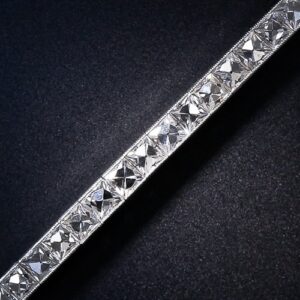

The term “French-Cut” does not refer to the country of origin, rather It refers to their shape and design. They are recognized by the typical “cross” the crown facets depict. French-cut stones are square or rectangular multifaceted stones. They are derived from making optimal use of dodecahedral diamond crystals.
A french-cut diamond is created by grinding the top of the crystal to create a table. The remaining crystal faces form natural facets that only need slight modeling to make it a symmetrical cut – as can be seen in the image on the right. The outline is squared and the pavilion is cut to 4 plain facets adjusting the angle of the original faces to allow a high light return. Varieties, where the facets described above are divided in half to create more facets, are common.
French-cut diamonds date back to the beginning of the 1400s but they came into fashion in the 17th century when they were favored by royalty and nobility until the brilliant-cut was first introduced. French-cut diamonds regained popularity during the Art Deco Era where they complimented the regular, geometric designs brilliantly.
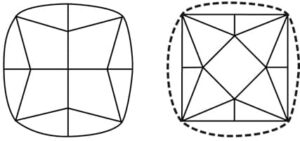
Its name is probably derived from the fact that it was more popular in France than anywhere else. You may encounter the term flat-bottomed French-cut. This refers to stones without a pavilion (like a rose cut). Their crowns follow the style of the traditional French-cut.
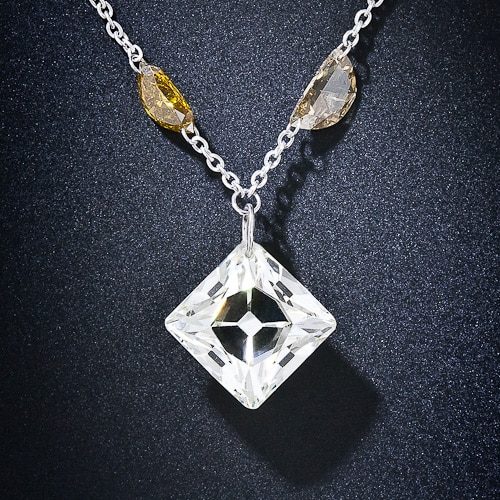
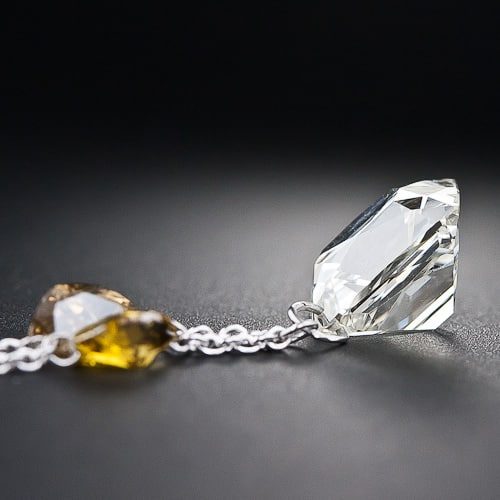
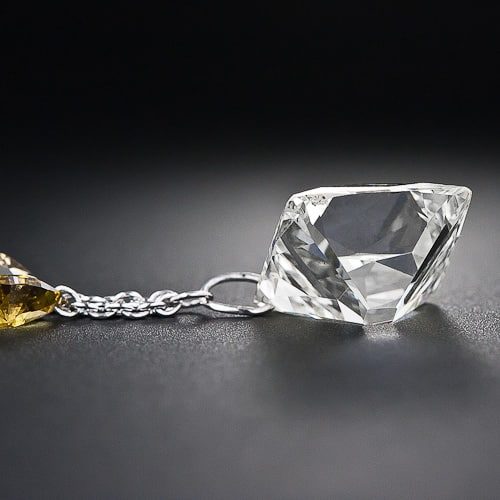
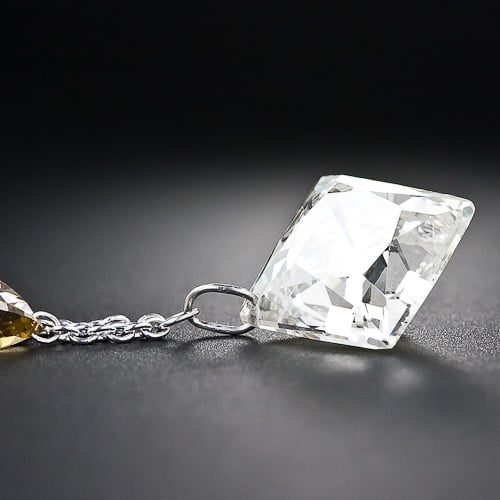
Sources
- Tillander, Herbert. Diamond Cuts in Historic Jewellery, London, UK, 1995 ISBN 1874044074